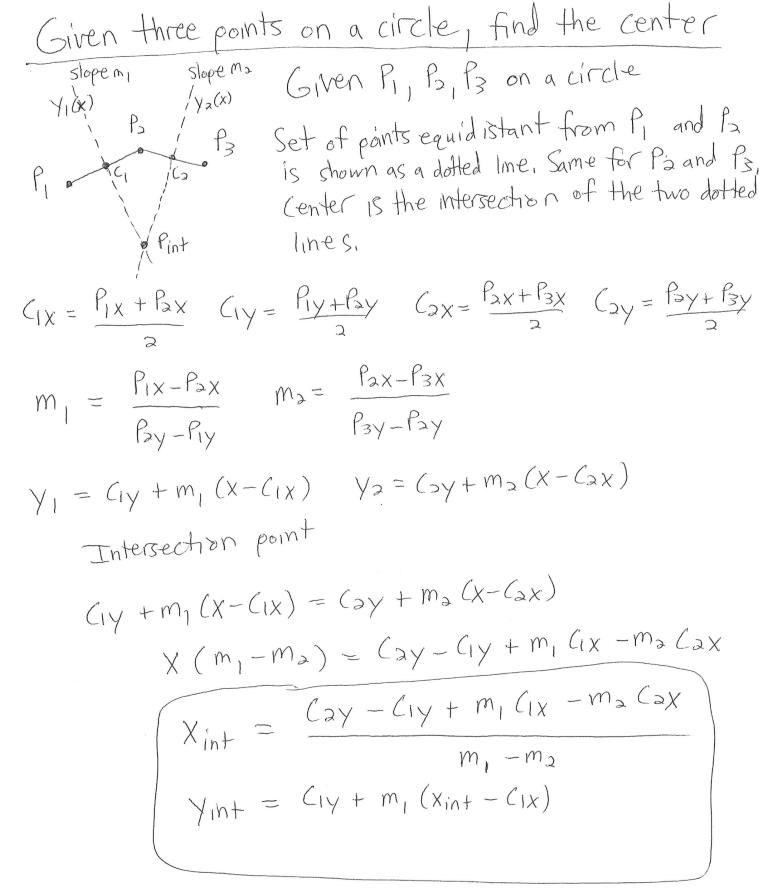Circle Center From Three Points
The following three points lie on a circle in the x y plane. Coordinates are approximated to three decimal places.
| ( x 1 , y 1 ) | ( 8 . 5 9 0 , 9 . 2 1 3 ) |
| ( x 2 , y 2 ) | ( 3 . 0 0 0 , 1 2 . 0 0 0 ) |
| ( x 3 , y 3 ) | ( − 3 . 0 6 2 , 1 . 5 0 0 ) |
If the center of the circle has coordinates ( h , k ) , determine ( h + k ) .
Details and Assumptions:
Round
h
and
k
individually to the nearest integer before adding them.
The answer is 8.
This section requires Javascript.
You are seeing this because something didn't load right. We suggest you, (a) try
refreshing the page, (b) enabling javascript if it is disabled on your browser and,
finally, (c)
loading the
non-javascript version of this page
. We're sorry about the hassle.
2 solutions

Good and easy solution too ( +1). And nice problem...
Given three points not aligned there exists one only circumference passing through of them. In this case, the circumference will have an equation C ≡ ( x − h ) 2 + ( y − k ) 2 = r 2 ≡ x 2 + y 2 − 2 h x − 2 k y + c = 0 Then, it's sufficient to substitute ( x 1 , y 1 ) , ( x 2 , y 2 ) , ( x 3 , y 3 ) in C and solve the equation for h , k , r or h , k , c ... In this case,it's better h , k , c , it's a long process, but not very hard... It's a linear system of three equations with three unknown variables. h ≈ 2 . 9 9 9 . . . , k ≈ 5 . 0 0 0 . .
I like how you kept it linear by representing the sum of the squares of h and k as a constant. I have also posted a geometric solution.